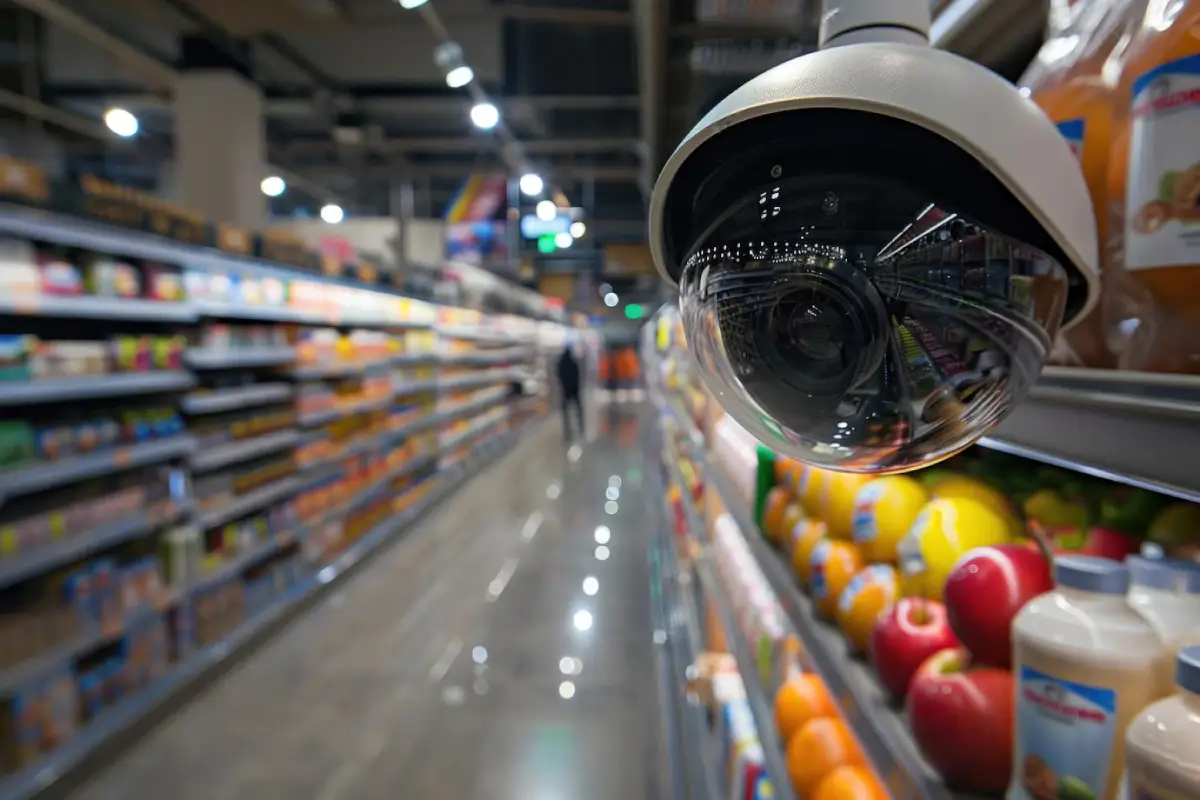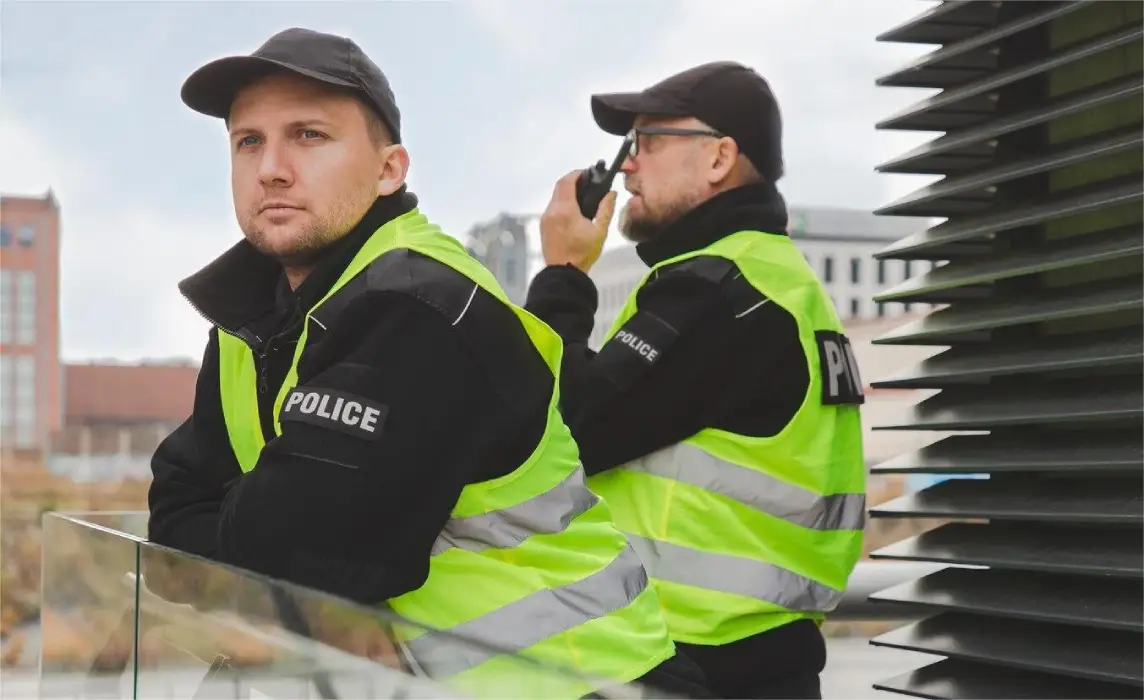
CCTV Licence If I Work in a Retail Supermarket
By London Security College Is Your Licence Near to Expire? SIA Refresher Training + First
Join us in a SIA Top Up Training to renew your licence
Shoplifting is the theft of items from retail stores without paying for them. It is quite common in the UK, but it has severe repercussions if caught. It is a legal crime taken very seriously all across the UK. The person accused of it was previously charged according to the Theft Act 1968 and now according to the Theft Act 1978.
The punishment for shoplifting also depends on factors like the value of the items stolen, the background of the shoplifter, and the environment in which the incident took place. For serious evil actions, punishments can include warnings, fines, or imprisonment.
Shoplifting is often caught. However, some retail stores sometimes decide not to take serious action against shoplifters or involve the police. Instead, they address the issue by warning or banning a particular person or group of people from entering the shop. They can also ask the shoplifters to compensate for the damage that occurred because of them; this is done by taking payment from them for the losses they made and then they let them go. For minor shoplifting crimes, the store may also go for community resolutions, which require the shoplifters to participate in specific programs through which they can bring a change in themselves.
However, the retailer always has the power to get the police into the matter. Even if they let a shoplifter go for that time, they can report against the shoplifter any time later. So, eventually, the decision of which action to take rests in the hands of the store management only. Shoplifting surely is a very consequential crime, and most of the time, retailers stand up against it by taking severe actions and not letting you go. Only if it’s a minor offence or done for the first time are there chances that you could be spared.
Getting caught on camera while shoplifting in the UK can put you into great trouble. In most cases, the police are immediately called, and the matter is then addressed legally. Until the police arrive, suspicious people are kept in custody. The CCTV footage is active evidence against the offenders and is hence used to prove their crime once the case has become legal. The police interrogate the matter, and according to its severity, it is further dealt with.
Besides involving the police, the store may also demand high fines or compensation from the shoplifters after catching them on camera. This is likely to be the case if the value of the stolen goods is not that high or there is no criminal record of the concerned persons. The store may also demand justice, which may be taken to court. The retailer has the choice to ban specific people from entering the shop in the future, but that is only the case if the offence is not extreme.
Shoplifting is a criminal offence that involves theft in retail stores. A shoplifter can be one person or a group of people who enter a shop or a store to steal some items from it without being caught. They know their task, and they do their work very well. It is challenging for the human eye to catch shoplifting live, especially in busy stores. CCTV cameras are, however, helpful in detecting shoplifting. If caught, the offenders can get punished to the extent of long-term imprisonment.
If you get caught shoplifting, you can face the following consequences:
Generally, charges may be brought against you at the time of the occurrence or soon after if you are caught shoplifting and the store chooses to call the police. Charges might be filed later in some circumstances, particularly if the evidence is not readily available or if more research is required.
Most criminal acts in the UK, including shoplifting, have a term of limitations on how long they can be prosecuted. We refer to this as the “limitation period.” The statute of limitations for summary offences, or less serious offences, like most shoplifting instances, usually is six months from the date of the offence. Generally, there is no statute of limitations for more severe crimes.
The elasticity of the seriousness of shoplifting varies greatly; consequently, the punishments for this crime are also not limited. The punishment depends on factors like the value of the stolen goods, the losses suffered by the retailer, and the criminal history of the shoplifter, etc.
The shoplifter can be charged for this offence through police involvement, which can lead to imprisonment. However, suppose the crime is not very severe. In that case, the store management can also punish the shoplifter by recovering their losses from them, detaining them, giving warnings, and banning their entry into the store again.
There is a variation in the time taken for a shoplifting investigation in different cases. This is because investigation depends on several elements. These include:
Therefore, the investigation is duration depends on all these factors. It takes a few days on average but might extend to weeks or months.
It is difficult to estimate the exact costs of shoplifting in the UK, but generally, shoplifting causes huge financial losses to businesses, retailers, and the UK economy as a whole. It also has many social and moral costs associated with it. Shoplifting that is caught and reported might not cause as much cost as shoplifting that is not caught and reported, and that is usually the case in the UK.
The costs of shoplifting include social costs, which are concerned with the teachings passed on to younger generations who witness shoplifting and might do that in the future if they are not directed to the right path. Besides this, the stores have increased their security and implemented more technological elements in their security, including CCTV cameras and monitors, to ensure that any shoplifting is caught immediately. These stores also bear income loss, leading to higher customer prices and negatively impacting the economy. Even if shoplifting is seen, the legal costs will also completely consume the stores’ revenues.
Stores usually store shoplifting records for a more extended period to ensure that any need regarding the records is met in the future. But it varies from store to store, spending on the store’s policies, their legal associations and the severity of the particular shoplifting incident. For more minor and less sensitive incidents, the records may be kept for a shorter period, like a few weeks or months. However, the records of major shoplifting incidents have been maintained for multiple years, and the purpose of this record keeping is to ensure that store history since the operation is kept in place and at times of any insurance or legal requirements, is not difficult. It is also essential for business mergers and takeovers for legal documentation and details. Moreover, without keeping records, the store management could not review the incidents repeatedly and implement and improve security measures accordingly.
Police may visit your house after a shoplifting incident if evidence, such as CCTV footage, links you to the offence. Retailers often report shoplifting incidents to law enforcement, especially when they have clear evidence like video footage or witness statements. A police visit might be to question you, gather additional evidence, or formally arrest you if there is sufficient proof of the offence.
Under the Anti-Social Behaviour, Crime and Policing Act 2014, shoplifting goods valued at under £200 is often dealt with through fixed penalty notices, community resolutions, or fines. However, more severe offences, such as organized theft or repeat offences, can lead to further legal action. Statistics from the Office for National Statistics (ONS) reveal that in 2022, over 265,000 shoplifting incidents were recorded in England and Wales, with law enforcement prioritizing cases backed by robust evidence like CCTV.
Reference: https://www.legislation.gov.uk/ukpga/2014/12/contents
Yes, you can still be prosecuted for shoplifting even if two months have passed since the incident. Shoplifting involving goods worth under £200 is classified as a summary offence under UK law. Such offences must be prosecuted within six months from the date of the offence. However, if the stolen goods are worth more than £200 or the case involves additional charges like fraud or assault, it may be treated as an indictable offence, which has no time limit for prosecution.
CCTV evidence is crucial for reopening cases after a delay. A 2021 survey by Retail Gazette found that 80% of UK retailers successfully used CCTV footage to identify and prosecute shoplifter’s weeks or even months after incidents occurred.
Reference: https://www.legislation.gov.uk/ukpga/1968/60/contents
If you’re caught shoplifting on CCTV, the footage can be used as evidence to prosecute you. Retailers often report such incidents to the police, who may contact you for questioning, issue a summons, or, in severe cases, arrest you. CCTV footage is admissible in court under the Police and Criminal Evidence Act 1984 if it is properly timestamped, clear, and unedited.
Penalties for shoplifting depend on the value of the stolen goods and your criminal record:
The British Retail Consortium reported in 2022 that shoplifting costs UK retailers over £1 billion annually. The Crown Prosecution Service also states that 40% of low-value thefts involving CCTV evidence result in community penalties or suspended sentences.
References:

By London Security College Is Your Licence Near to Expire? SIA Refresher Training + First

By London Security College Is Your Licence Near to Expire? SIA Refresher Training + First

By London Security College Is Your Licence Near to Expire? SIA Refresher Training + First

By London Security College Is Your Licence Near to Expire? SIA Refresher Training + First
London| Birmingham| Manchester | Leeds | Glasgow | Sheffield
London Security College is the leading supplier of SIA Licence courses in London. We excel in SIA Courses such as SIA Door Supervisor Course, SIA Top Up Training, SIA CCTV Surveillance Course, First Aid Courses, Traffic Marshal Banksman Course Online, and Forklift Training Course.
“It is impossible for a man to learn what he thinks he already knows”
London Security College
International House,
24 Holborn Viaduct,
London, EC1A 2BN
020 8050 4108
Copyright © LONDON SECURITY COLLEGE is a training and hiring platform

Fill in the form below
2 thoughts on “Shoplifting in the UK”
A useful overview of shoplifting impacts.
Highly recommend this article!